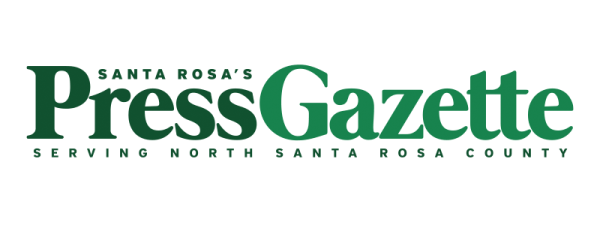Why is printing a newspaper so important?
Those stories, which graced the pages of our newspaper years ago, are still available to those with an all-access subscription. As part of our Centennial preparations, we had great fun reading newspapers from that era. Now that we are the proud owners of the Santa Rosa Press Gazette, we can look back more than a hundred years to discover the roots of our communities.
The pages read like a “who’s who” while documenting daily life. In the Dec. 23, 1910, issue of The Milton Gazette, for example, we learn:
“Mr. E.W. Speed, L&N auditor, is here this week. Miss Belle Robers visited Pensacola this week. Mr. S.I. Sykes had the misfortune one day this week to break a leg in alighting from the bus. Mr. Raliegh K. Andrews, representing the Good Health Publishing Company, is in town and will be here for several days. His work possesses great merit and will appeal to our thoughtful citizens.”
Mentions like these matter deeply to those tracing their genealogy. One brief line in a century-old newspaper archive can unlock the story of an ancestor. We are truly reporting today’s news that will become tomorrow’s history. It’s through these earliest forms of journalism that we’ve come to know so much about our first hundred years—and now, we are chronicling the next hundred.
We were also honored to have Pam Brannon at the celebration. As the former owner of Navarre News, she was one of the first to preserve Navarre’s history from within the community. Today, Navarre Press proudly carries on that responsibility: informing citizens, serving as their voice, and recording history as it unfolds. A hundred years from now, those planning the second Centennial Celebration will no doubt be digging through our archives, looking for glimpses of what life was like.
The printed word is invaluable. It demands high standards before it ever hits the page—because once it’s printed, it lives forever. With online-only sources, stories can be silently edited or altered. Five years later, the truth may no longer be visible, and the editing trail is lost. That risk is significant, especially in an age when efforts to erase or rewrite history have surfaced. You simply can’t do that when the truth is printed and permanent.
And there’s something grounding about holding a newspaper in your hands, sipping a cup of coffee, and flipping through the pages. The future may bring new formats and fresh ideas about what a newspaper can be—and maybe our company will help lead that change. But for now, and for as long as we are able, we’ll keep holding newspapers in our hands, turning their pages and recording history—one story at a time.






